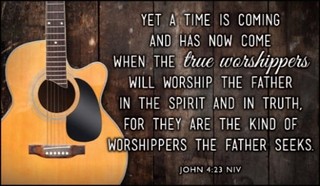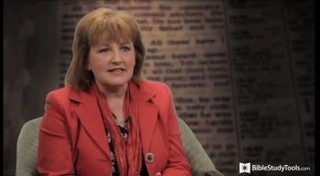
- Recent Translations
- All Translations
Images for Yochanan 4:43-54

Videos for Yochanan 4:43-54
Yochanan 4:43-54 Meaning and Commentary
INTRODUCTION TO 1 JOHN 4
In this chapter the apostle cautions against seducing spirits; advises to try them, and gives rules by which they may be known, and by which they are distinguished from others; and then returns to his favourite subject, brotherly love. He exhorts the saints not to believe every man that came with a doctrine to them, but to try them, since there were many false teachers in the world; and gives a rule by which they may be tried and judged, as that whatever teacher owns Christ to be come in the flesh is of God, but he that does not is not of God, but is the spirit of antichrist that should come, and was in the world, 1Jo 4:1,2, but, for the comfort of those to whom he writes, he observes, that they were of God, and had overcome these false teachers, through the mighty power of the divine Spirit in them, who is greater than Satan, and all his emissaries, 1Jo 4:4. He distinguishes between seducing spirits, and faithful ministers of the word; the former are of the world, speak of worldly things, and worldly men hear them; but the latter are of God, and they that have any spiritual knowledge of God hear them; but such as are not of God do not heal them, by which may he known the spirit of truth from the spirit of error, 1Jo 4:5,6. And then the apostle returns to his former exhortation to brotherly love, which he enforces by the following reasons, because it is of God, a fruit of his Spirit and grace, and because it is an evidence of being born of God, and of having a true knowledge of him; whereas he that is destitute of it does not know him, seeing God is love, 1Jo 4:7,8, and having affirmed that God is love, he proves it, by the mission of his Son, to be a propitiation for the sins of such that did not love him, and that they might live through him; wherefore he argues, that if God had such a love to men, so undeserving of it, then the saints ought to love one another, 1Jo 4:9-11. Other arguments follow, engaging to it, as that God is invisible; and if he is to be loved, then certainly his people, who are visible; and that such who love one another, God dwells in them, and his love is perfected in them; and that he dwells in them is known by the gift of his Spirit to them, 1Jo 4:12,13, and that God the Father so loved the world, as to send his Son to be the Saviour of it, before asserted, is confirmed by the apostles, who were eyewitnesses of it; who also declare, that whoever confesses the sonship of Christ, God dwells in him, and he in God; and who had an assurance of the love of God to them, who is love itself; so that he that dwells in God, and God in him, dwells in love, 1Jo 4:14-16. And great are the advantages arising from hence, for hereby the saints' love to God is made perfect; they have boldness in the day of judgment, since as he is, so are they in this world, and fear is cast out by it, 1Jo 4:17,18, but lest too much should be thought to be ascribed to love, that is said to be owing to the love of God to them, which is prior to theirs to him, and the reason of it, 1Jo 4:19. And the chapter is closed with observing the contradiction there is between a profession of love to God, and hatred of the brethren, seeing God, who is invisible, cannot be loved, if brethren that are seen are hated; and also the commandment, that he that loves God should love his brother also, 1Jo 4:20,21.
